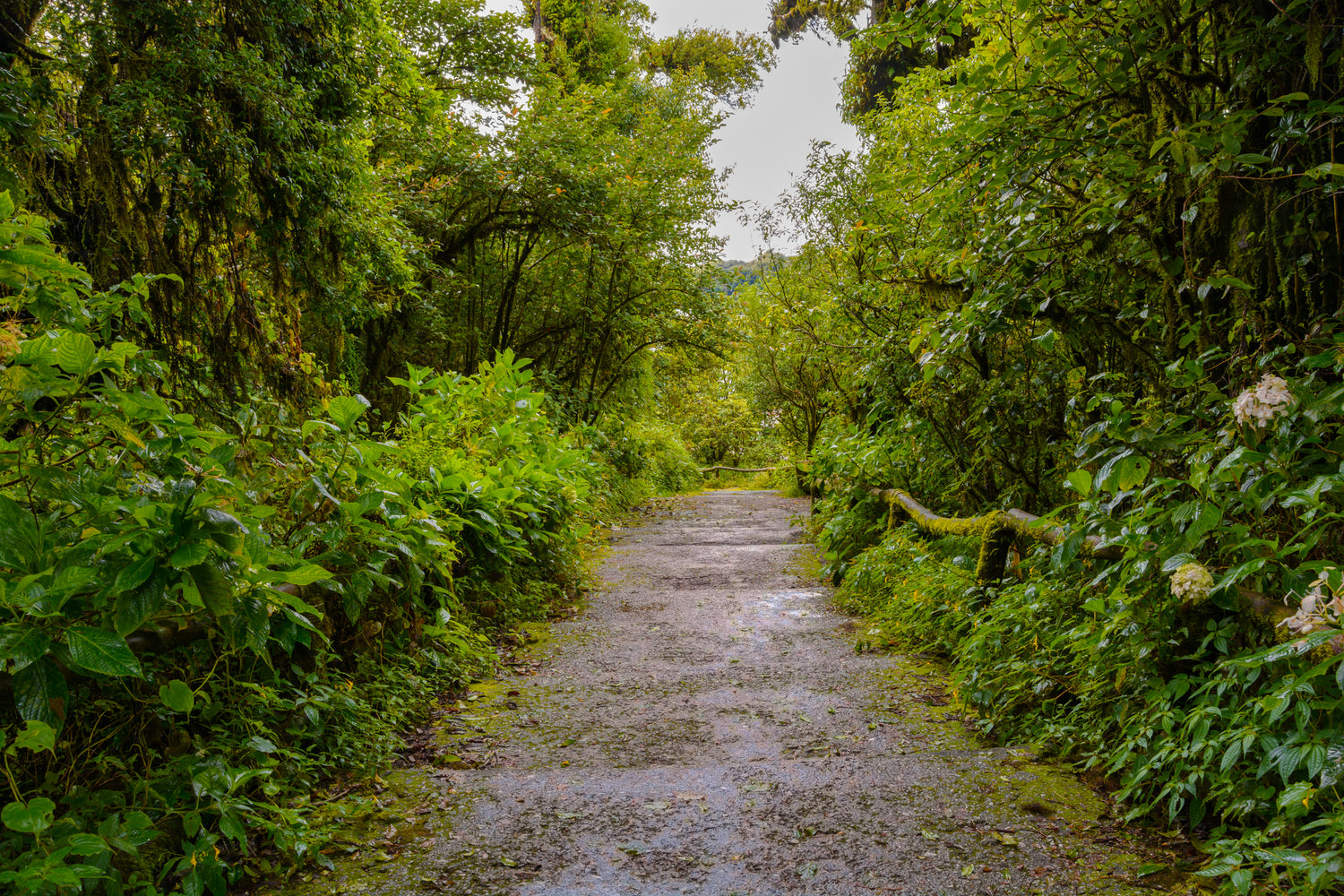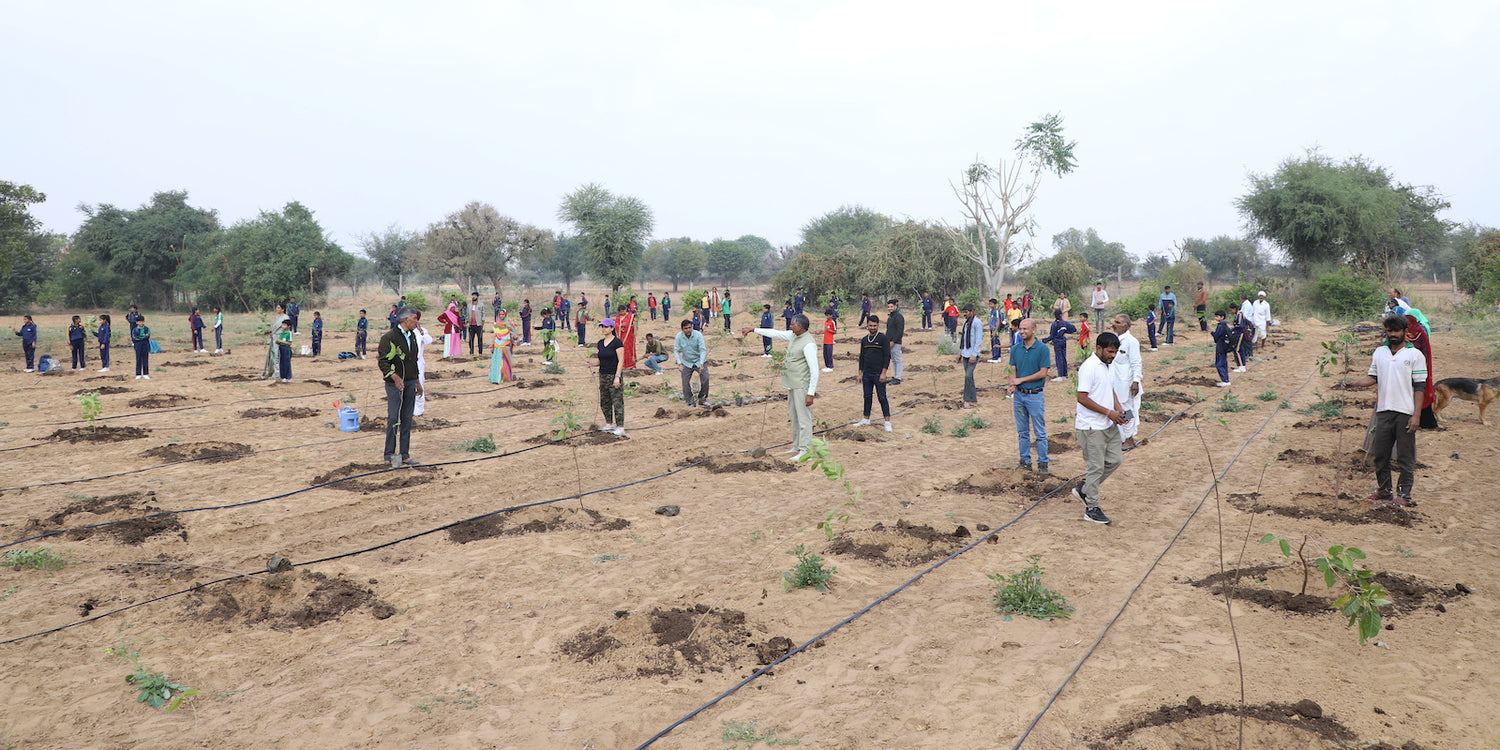Miyawaki Forest in Gwalior
In the heart of Gwalior, a green revolution is quietly taking root. The Miyawaki Forest, a testament to nature's resilience, is transforming barren la Read more
Connect with us
-
👥 Corporates
If you are looking for:
- 🌲 Tree Plantation Events
- 📊 CSR Projects
📧 corporate@growbilliontrees.com
📞 +91 9699723523
💬 +91 9325931304 WhatsApp (Only)
🕒 Mon - Sat | 10am - 7pm IST
-
🧩 Tree Plantation NGOs
If you are looking for:
- 💰 Financial Assistance
- 🤝 Operational Support
📧 support@growbilliontrees.com
📞 +91 9699723523
💬 +91 9325931304 WhatsApp (Only)
🕒 Mon - Sat | 10am - 7pm IST
-
🌼 Individuals
If you are looking for:
- 👥 Group Tree Plantation Drive
- 🌳 Bulk Tree Plantation
📞 +91 9699723523
💬 +91 9325931304 WhatsApp (Only)
🕒 Mon - Sat | 10am - 7pm IST
Plantation Gallery
Trending
Trees for Corporates
Miyawaki Forest in Gwalior
In the heart of Gwalior, a green revolution is quietly taking root. The Miyawaki Forest, a testament to nature's resilience, is transforming barren landscapes into lush, thriving ecosystems. This initiative is not just about planting trees; it's about nurturing a sustainable future.
The Miyawaki method, pioneered by Japanese botanist Akira Miyawaki, is a unique approach to afforestation. It involves planting native species in dense clusters, mimicking natural forests. This method accelerates growth, creating a self-sustaining forest in just a few years.
In Gwalior, the Miyawaki Forest is more than a project; it's a movement. It symbolizes hope, resilience, and the power of collective action. The forest is a living, breathing entity, offering a sanctuary for biodiversity and a respite for the community.
Grow Billion Trees, a visionary organization, is at the forefront of this green transformation. They are partnering with corporates, government bodies, and volunteers to conduct regular tree plantations. Their mission is clear: to plant a billion trees and restore ecological balance.
Corporate partnerships are crucial to the success of the Miyawaki Forest in Gwalior. Companies are increasingly recognizing their role in environmental stewardship. By supporting tree plantations, they are investing in a sustainable future and enhancing their corporate social responsibility.
The government, too, plays a pivotal role. By providing land, resources, and policy support, they are enabling large-scale afforestation projects. Their collaboration with Grow Billion Trees ensures that the Miyawaki Forest is not just a dream but a reality.
Volunteers are the lifeblood of this initiative. Their passion and dedication fuel the project, turning vision into action. From planting saplings to nurturing young trees, volunteers are integral to the forest's success.
The impact of the Miyawaki Forest in Gwalior is profound. It is revitalizing the local ecosystem, improving air quality, and enhancing biodiversity. The forest is a haven for birds, insects, and small mammals, creating a balanced and thriving habitat.
Moreover, the forest is a source of inspiration for the community. It demonstrates the power of collective action and the potential for positive change. Schools, local groups, and families visit the forest, learning about ecology and sustainability.
The Miyawaki Forest is also a catalyst for economic growth. It creates jobs in tree planting, maintenance, and eco-tourism. The forest attracts visitors, boosting local businesses and promoting environmental awareness.
Grow Billion Trees is committed to expanding the Miyawaki Forest model across India. Their vision is to create a network of urban forests, transforming cities into green havens. By partnering with diverse stakeholders, they are making this vision a reality.
The journey of the Miyawaki Forest in Gwalior is a testament to human ingenuity and nature's resilience. It is a story of hope, collaboration, and the relentless pursuit of a greener future.
As you explore our Shopify page, we invite you to join this movement. Whether you're a corporate entity, a government body, or an individual, your support can make a difference. Together, we can plant a billion trees and create a sustainable legacy.
Imagine a world where cities are adorned with lush forests, where air is clean, and biodiversity thrives. This is not just a dream; it's a possibility. The Miyawaki Forest in Gwalior is a beacon of hope, lighting the way to a sustainable future.
Join us in this green revolution. Be a part of the change. Together, let's grow a billion trees and transform our world, one forest at a time.
Miyawaki Forest Benefits
Choosing the right species for a Miyawaki Forest is like picking the perfect cast for a blockbuster movie. In Gwalior, it's all about selecting native species that can handle the local climate and soil. Think of it as assembling a team of superheroes, each with their unique powers to combat climate change. The result? A forest that thrives without needing constant pampering. It's nature's way of saying, "I've got this!"
Community Involvement
Miyawaki Forests in Gwalior are not just about trees; they're also about teaching moments. Schools and educational institutions use these forests as living classrooms, where students learn about ecology, sustainability, and the importance of conservation. It's like having a textbook that grows and changes with the seasons. Who knew education could be so hands-on?
You may like
Corporate Plantations
FAQ
What is a Miyawaki Forest and how does it work?
A Miyawaki Forest is a dense, native forest created using the Miyawaki method, developed by Japanese botanist Akira Miyawaki. This method involves planting a variety of native species close together, which encourages rapid growth and biodiversity. At Grow Billion Trees, we embrace this technique to transform barren lands into lush green spaces. The close planting mimics natural forests, allowing plants to support each other, improve soil quality, and create a self-sustaining ecosystem. In Gwalior, this approach is perfect for combating urban heat and pollution while providing a green haven for local wildlife.
Why is the Miyawaki method suitable for Gwalior?
Gwalior, with its semi-arid climate, benefits immensely from the Miyawaki method. This technique is ideal for urban areas with limited space, as it requires less land and water compared to traditional afforestation methods. At Grow Billion Trees, we find that the Miyawaki method's rapid growth rate—up to 10 times faster than conventional forests—makes it perfect for Gwalior's environmental needs. The dense planting helps in reducing air pollution, lowering temperatures, and increasing biodiversity, making Gwalior greener and more sustainable.
How long does it take for a Miyawaki Forest to mature?
Patience is a virtue, but with the Miyawaki method, you won't need much! Typically, a Miyawaki Forest matures in just 20-30 years, compared to the 100 years it takes for a conventional forest. At Grow Billion Trees, we love this fast-forward button for nature. In Gwalior, you can expect to see significant growth within the first three years, with the forest becoming self-sustaining in about 10 years. This rapid development is due to the dense planting and diverse species selection, which accelerates natural processes.
What are the benefits of a Miyawaki Forest in urban areas like Gwalior?
Miyawaki Forests are urban superheroes! In Gwalior, they combat pollution, reduce urban heat, and increase biodiversity. At Grow Billion Trees, we champion these forests for their ability to sequester carbon, improve air quality, and provide habitats for local wildlife. They also offer aesthetic and recreational benefits, creating green spaces for residents to enjoy. The dense planting reduces noise pollution and can even increase property values. In short, Miyawaki Forests are a win-win for urban environments, offering ecological, social, and economic benefits.
How does Grow Billion Trees implement the Miyawaki method in Gwalior?
At Grow Billion Trees, we start by analyzing the local soil and climate conditions in Gwalior. We then select a diverse mix of native species to plant closely together, mimicking a natural forest. Our team ensures the soil is enriched with organic matter to support rapid growth. We also provide initial care, such as watering and weeding, to help the young forest establish itself. Once the forest is self-sustaining, it requires minimal maintenance. Our approach ensures that each Miyawaki Forest in Gwalior thrives, contributing to a greener, healthier city.
What challenges does Grow Billion Trees face in creating Miyawaki Forests in Gwalior?
Creating Miyawaki Forests in Gwalior isn't without its hurdles. At Grow Billion Trees, we often face challenges like limited space, water scarcity, and soil degradation. However, our team is adept at turning these obstacles into opportunities. We use innovative techniques to maximize space and improve soil quality, ensuring the forests thrive even in challenging conditions. Water conservation methods, such as rainwater harvesting, help us tackle water scarcity. Despite these challenges, our commitment to greening Gwalior remains unwavering, and we continue to find creative solutions to make it happen.
How can residents of Gwalior get involved with Grow Billion Trees?
Join the green revolution! Residents of Gwalior can get involved with Grow Billion Trees by participating in our tree-planting events, volunteering for forest maintenance, or even adopting a patch of forest. We also offer educational workshops to teach the community about the benefits of Miyawaki Forests and sustainable practices. By getting involved, residents can contribute to a greener Gwalior, enjoy the benefits of urban forests, and become part of a community dedicated to environmental conservation. Together, we can make Gwalior a model city for urban afforestation.
What impact has Grow Billion Trees had on Gwalior so far?
Grow Billion Trees has been a game-changer for Gwalior's environment. Our Miyawaki Forests have transformed barren lands into thriving ecosystems, improving air quality and reducing urban heat. We've increased local biodiversity, providing habitats for various species. Our efforts have also raised environmental awareness and inspired community involvement in green initiatives. The positive impact on Gwalior's landscape and residents' quality of life is evident, and we're just getting started. With continued support, we aim to expand our efforts, making Gwalior a greener, healthier city for future generations.























